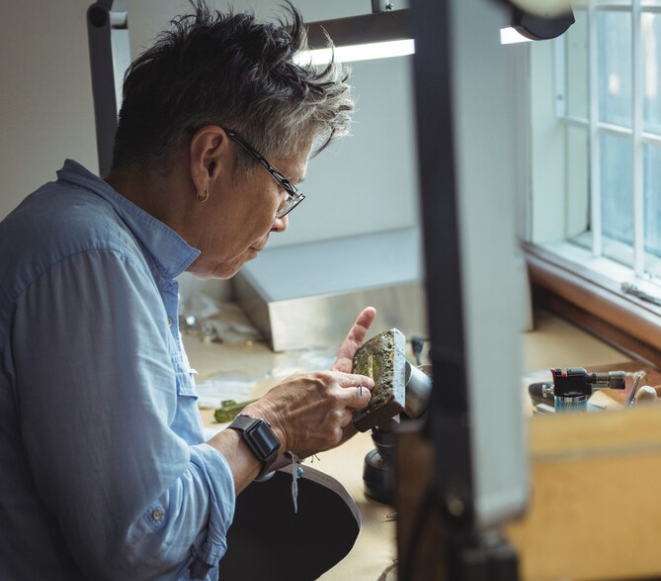
What are Plastic Mold Makers?
The plastic mold maker industry is at the forefront of innovation, playing a pivotal role in various sectors including automotive, electronics, consumer goods, and healthcare. However, like any other industry, it faces its fair share of challenges. In this comprehensive guide, we delve into the challenges encountered by plastic mold makers and present solutions to overcome them effectively.
Global Competition and Price Pressure
With the globalization of markets, plastic mold makers are facing intense competition from both domestic and international players. This heightened competition exerts pressure on prices, making it challenging for businesses to maintain profitability while delivering high-quality products.
Solution: To tackle this challenge, plastic mold makers need to focus on differentiation and specialization. Identifying niche markets or offering unique services such as rapid prototyping, customized solutions, or expertise in specific materials, companies can carve out a competitive edge. Additionally, investing in advanced technologies like computer-aided design (CAD), computer-aided manufacturing (CAM), and 3D printing can streamline processes, reduce costs, and enhance product quality, thereby increasing competitiveness in the global market.
Rapid Technological Advancements
The plastic mold making industry is characterized by rapid technological advancements, with new materials, processes, and equipment constantly emerging. Keeping up with these advancements and integrating them into existing operations can be a daunting task for many companies.
Solution: Embracing a culture of continuous learning and innovation is essential for staying ahead in this dynamic industry. Companies should invest in employee training programs to ensure that their workforce is equipped with the latest skills and knowledge. Additionally, fostering partnerships with technology providers and research institutions can provide access to cutting-edge technologies and expertise, enabling companies to adapt quickly to technological changes and maintain a competitive edge.
Quality Control and Compliance
Maintaining stringent quality control standards is crucial in the plastic mold maker industry to ensure the reliability and safety of products. However, achieving and maintaining compliance with industry regulations and standards can be challenging, particularly in highly regulated sectors such as automotive and medical devices.
Solution: Implementing robust quality management systems (QMS) and adhering to internationally recognized standards such as ISO 9001 can help ensure consistency, traceability, and compliance throughout the manufacturing process. Additionally, investing in advanced inspection technologies such as coordinate measuring machines (CMMs) and non-destructive testing (NDT) equipment can enhance quality control capabilities and detect defects early in the production process, reducing rework and scrap costs.
Supply Chain Disruptions
The plastic mold making industry relies heavily on complex global supply chains for raw materials, components, and equipment. Disruptions such as natural disasters, geopolitical tensions, or pandemics can severely impact the availability and cost of essential resources, leading to production delays and increased operational costs.
Solution: To mitigate supply chain disruptions, companies should adopt a proactive approach to risk management and diversify their supplier base to reduce dependence on a single source. Building strategic partnerships with reliable suppliers and maintaining open communication channels can facilitate rapid response to disruptions and enable companies to source alternative solutions quickly. Additionally, implementing inventory management systems and maintaining buffer stocks of critical materials can help cushion the impact of supply chain disruptions and ensure continuity of operations.
Environmental Sustainability
As environmental concerns continue to escalate, plastic mold makers face increasing pressure to adopt sustainable practices and reduce their environmental footprint. This includes minimizing waste generation, optimizing energy consumption, and transitioning to eco-friendly materials and processes.
Solution: Embracing sustainability not only helps plastic mold makers meet regulatory requirements and consumer expectations but also presents opportunities for cost savings and market differentiation. Companies can implement initiatives such as recycling programs, energy-efficient manufacturing processes, and eco-friendly material sourcing to minimize their environmental impact. Additionally, obtaining certifications such as ISO 14001 for environmental management can demonstrate a commitment to sustainability and enhance brand reputation.
Conclusion
The plastic mold maker industry is faced with a wide array of challenges that include global competition and technological advancements to quality control and environmental sustainability. On the other hand, through proactive strategies and innovation acceptance companies can challenge these obstacles and survive in this competitive business world. As a result, concentrating on differentiation, continuous improvement and sustainability will allow plastic mold makers to build themselves for long-term success as well as keep the competitive edge in global market.








